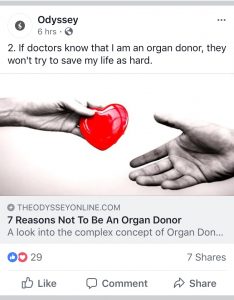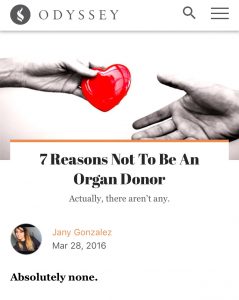In our society, it is common practice to euthanize dogs in old age either with or without chronic medical conditions. However, physician assisted suicide for human beings is controversial and only legal in some parts of the United States. Now, I understand that the comparison between the death of a dog and the death of a human may appear insensitive or tactless, but I think it is one that deserves attention. I frequently hear dog owners, myself included, say that they love their dog as if they were their own child. If this love is so intense and comparable to the love we give other humans, why do we, as a society, condone and even promote the euthanasia of dogs while we shudder at the idea of euthanizing humans?
Pet owners often decide to put a dog down because they are in apparent pain, or the family believes that they should not suffer any longer. The family makes this decision based on the observed quality of life, but they have no idea of the dog’s wishes. Dogs cannot speak for themselves or express their will, but humans make the decision to end their life for them. It is never an easy decision, but it is one that our society supports.
The euthanasia of humans is a much more divisive topic in our society. In recent years, physician assisted suicide has become legal in some states. The idea is that those with chronic conditions may choose to die with dignity. Yet, many regulations are in place, for example, the patient must request to die at least three times, twice verbally and once written, and the person requesting to die must be able to administer the drugs themselves.
These requirements are not necessary for euthanizing dogs. The consent of the dog is not obligatory, and the fatal concoction is administered by a veterinarian, not the dog. While it may seem silly to expect anything of that nature from a dog, I think in some situations it is also ludicrous to expect it from a chronically ill human. Quadriplegics with a poor quality of life and the desire to die are not eligible for physician assisted suicide despite their request because they would not be able to submit a written request nor administer the drugs themselves.
This post is by no means an extensive analysis of euthanasia nor is it an argument in favor of physician assisted suicide or one against the euthanasia of family pets. I simply found it to be an interesting perspective on the matter. An article from the New York Times, titled The Death of the Doctor’s Dog offers a more detailed account of the moral questions that arise when discussing the euthanasia of any living being.
References:
https://www.deathwithdignity.org/learn/death-with-dignity-acts/
https://www.nytimes.com/2018/02/06/well/live/death-dying-doctors-dog-euthanasia.html



